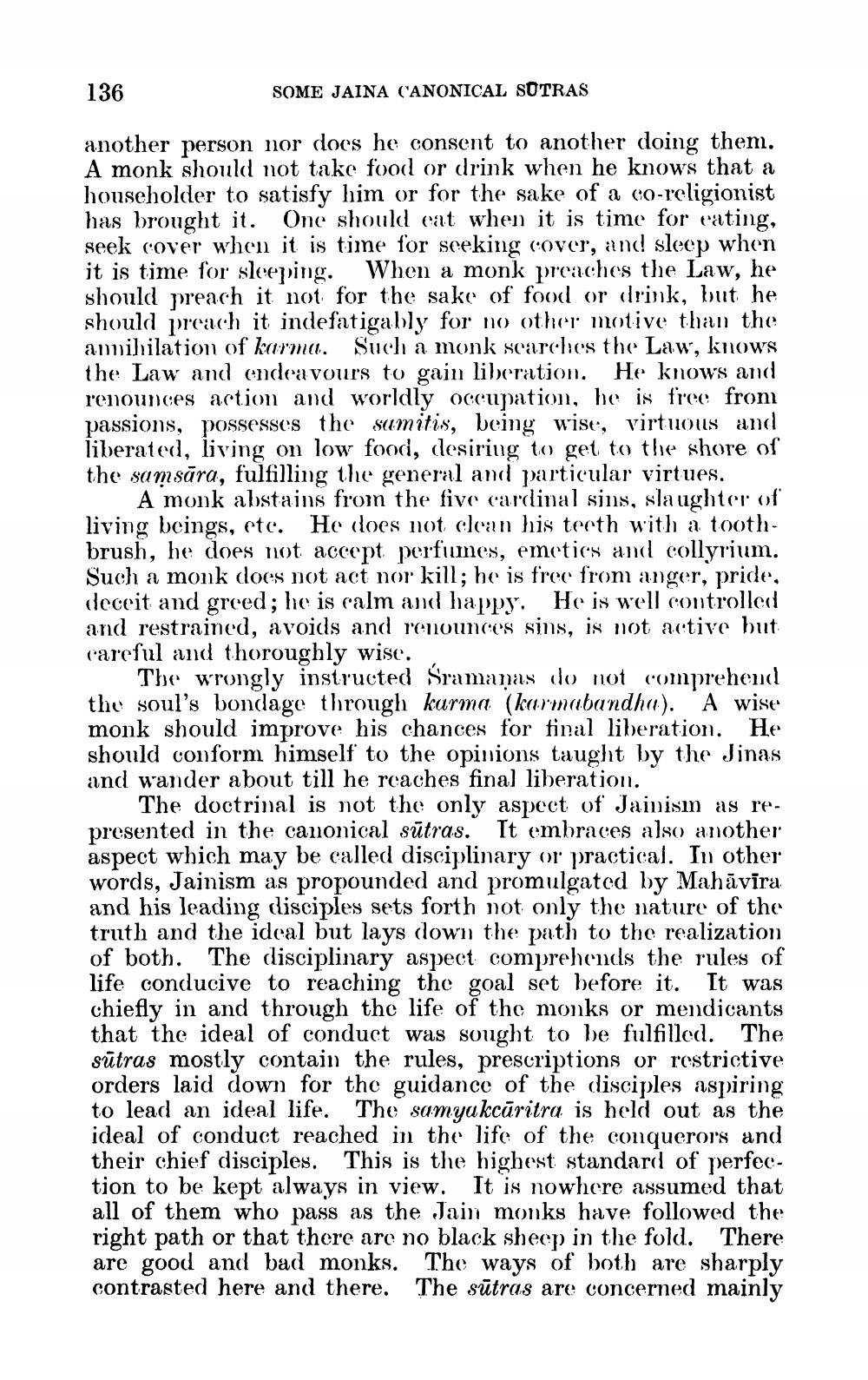________________
136
SOME JAINA CANONICAL SUTRAS
another person nor does he consent to another doing them. A monk should not take food or drink when he knows that a householder to satisfy him or for the sake of a co-religionist has brought it. One should eat when it is time for eating, seek cover when it is time for seeking cover, and sleep when it is time for sleeping. When a monk preaches the Law, he should preach it not for the sake of food or drink, but he should preach it indefatigably for no other motive than the annihilation of karma. Such a monk searches the Law, knows the Law and endeavours to gain liberation. He knows and renounces action and worldly occupation, he is free from passions, possesses the samitis, being wise, virtuous and liberated, living on low food, desiring to get to the shore of the samsara, fulfilling the general and particular virtues.
A monk abstains from the five cardinal sins, slaughter of living beings, etc. He does not clean his teeth with a toothbrush, he does not accept perfumes, emetics and collyrium. Such a monk does not act nor kill; he is free from anger, pride, deceit and greed; he is calm and happy. He is well controlled and restrained, avoids and renounces sins, is not active but careful and thoroughly wise.
The wrongly instructed Sramanas do not comprehend the soul's bondage through karma (karmabandha). A wise monk should improve his chances for final liberation. He should conform himself to the opinions taught by the Jinas and wander about till he reaches final liberation.
The doctrinal is not the only aspect of Jainism as represented in the canonical sutras. It embraces also another aspect which may be called disciplinary or practical. In other words, Jainism as propounded and promulgated by Mahavira and his leading disciples sets forth not only the nature of the truth and the ideal but lays down the path to the realization of both. The disciplinary aspect comprehends the rules of life conducive to reaching the goal set before it. It was chiefly in and through the life of the monks or mendicants that the ideal of conduct was sought to be fulfilled. The sutras mostly contain the rules, prescriptions or restrictive orders laid down for the guidance of the disciples aspiring to lead an ideal life. The samyakcāritra is held out as the ideal of conduct reached in the life of the conquerors and their chief disciples. This is the highest standard of perfection to be kept always in view. It is nowhere assumed that all of them who pass as the Jain monks have followed the right path or that there are no black sheep in the fold. There are good and bad monks. The ways of both are sharply contrasted here and there. The sutras are concerned mainly




